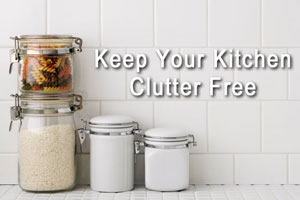Decluttering and zero waste living go hand in hand. At Wasteless Pantry, we believe that reducing waste isn’t just about cutting back on single-use items, but also about managing the clutter in your home. If you can’t find what you need or are constantly buying duplicates, that’s waste too! These sustainable decluttering tips can help you save time, money, and bring peace of mind, all while helping the environment.
Here’s how you can get started:
Start Small: Focus on One Space at a Time
The key to successful decluttering is to break the task down into manageable chunks. Start with a small space, like a drawer, a shelf, or a cluttered corner. Empty the space completely and only put back items that you love or find useful. Anything that doesn’t fit should be removed—sell, donate, recycle, or toss. If you’re unsure, put it in a box with a date on it. If you don’t use it within the next couple of months, it’s time to let it go.
Set Clear Goals: How Much Do You Want to Declutter?
Decide whether your goal is to clear everything or just reduce the amount of stuff. If your goal is to clear, be strict about what stays. If you just want less, go through your items one box at a time until you’ve reduced enough to feel comfortable.
Declutter by Category: Find Duplicates
Group similar items together, such as all your pens, serving utensils, or books. Seeing everything in one place makes it easier to find duplicates. Keep the best and let go of the rest. This strategy can simplify decision-making and reduce the amount of stuff cluttering up your space.
Prioritize for Maximum Impact
When deciding where to start, focus on spaces that will have the biggest impact—visually or functionally. For instance, a clean kitchen bench can feel incredibly rewarding, while organizing your everyday utensils can make cooking more enjoyable. Spaces that are less frequently used, such as a storage closet, can wait until you’ve tackled the more pressing areas.
Get Creative: Shared Ownership & Minimalist Challenges
If certain items aren’t being used often, consider sharing them with friends or family. For example, loan out a fan or a kitchen gadget, and retrieve it when needed. It’s a great way to avoid clutter while ensuring items are used to their full potential.
Additionally, challenge yourself to stop buying new things unless something else leaves the house. This can help you build a habit of mindful consumption, ensuring that every new item truly adds value to your life.
Why Decluttering Matters for a Sustainable Lifestyle
Decluttering isn’t just about tidying up—it’s about making more intentional choices that reduce waste and free up your time and energy. At Wasteless Pantry, we support a more thoughtful approach to consumption. By following these sustainable decluttering tips you’re less likely to buy duplicates, and you’ll discover reusable items that you may have forgotten about. Plus, donating or recycling your unneeded items ensures they get a second life instead of ending up in a landfill.


So at the beginning of the year, I decided to give away something that I no longer need every week. We have a community Facebook group called “Waste not want not” where people post things they no longer want and others may need. People also ask for things they need..We also have a local ‘shop’ called “Mend and Make Do,” I believe it is a voluntary organisation where you can take all sorts of items, especially craft supplies wool, old patterns, lace etc. My donating ‘habit’ has been quite a positive experience. Items have included plastic pantry containers (I’ve converted to glass, mainly moccona jars), lots of clothes, cassette tapes (yes these found a new home), luggage, toys (don’t tell the kids), linen, dessert bowls, puzzles, toddler car seat etc…With the recent floods in Lismore we also donated a heap of items to families that have lost everything. My husband’s work also have a ‘free’ book stand, where people can take books or donate books. If I have any excess produce from my vegie patch or citrus orchard, I always share this too 🙂 There are just so many wonderful ways you can keep these items out of landfill for a little longer and reduce consumerism….
Absolutely Di!